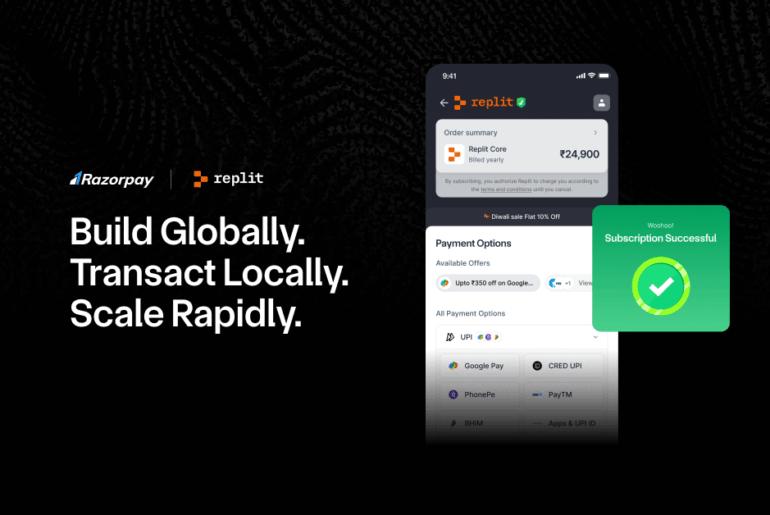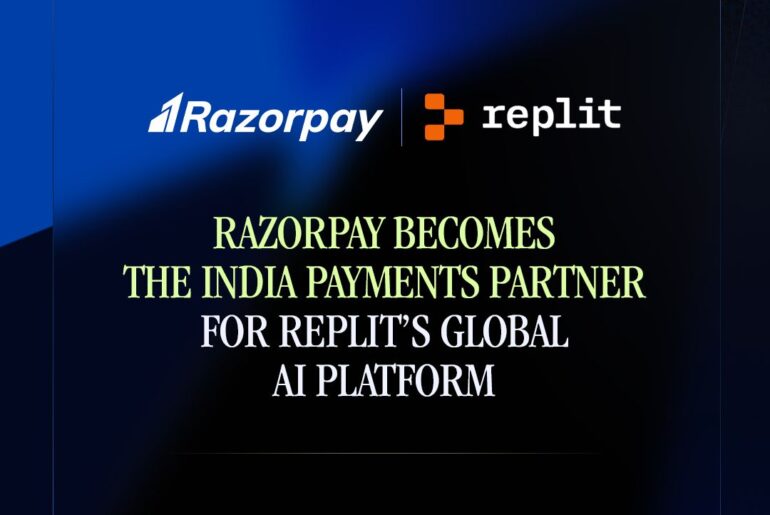Picture yourself booking movie tickets online, ordering groceries from your favourite supermarket’s app, or subscribing to a streaming service. Chances are, you’ve just completed a card-not-present transaction. In today’s digital economy, card-not-present (CNP) transactions dominate, enabling businesses to serve customers anytime, anywhere, across devices and geographies.
But what exactly is the card-not-present transaction meaning? How do these transactions differ from traditional card-present payments? And most importantly, how can businesses accept CNP payments securely and efficiently? Let’s dive in.
With Razorpay, you can accept card-not-present CNP transactions securely, whether you run an e-commerce store, SaaS platform, or subscription business.
For Did You Know Section
Key Takeaways
CNP Is Everywhere: From online shopping to recurring subscriptions, most digital payments today are card-not-present transactions.
Security Is Critical: Since cards aren’t physically verified, fraud risk is higher—making secure payment gateways like Razorpay essential.
Customer Convenience Wins: CNP allows businesses to serve customers anytime, anywhere, across devices and geographies.
Razorpay Advantage: Products like Payment Gateway, Subscriptions, and International Payments make accepting and managing CNP transactions seamless and safe.
What Are Card-Not-Present Transactions?
A card-not-present transaction is a payment processed without the physical presence of the card. The merchant doesn’t have access to the physical credit or debit card to validate the customer’s identity. Instead, the transaction is completed by providing the card details remotely.
Common examples of CNP transactions include:
- Online purchases (e-commerce checkouts)
- Recurring subscription payments (OTT, SaaS)
- Mobile app payments
- Phone/IVR orders
- Digital invoices and payment links
- Cross-border online purchases
In contrast, card-present transactions involve physically swiping, tapping, or dipping the card at a point-of-sale (POS) terminal. The card’s EMV chip or magnetic stripe is read and authenticated on the spot.
How CNP Transactions Work
Here’s a simplified step-by-step flow of how a typical card-not-present transaction is processed:
- The customer enters their card details and billing information on the merchant’s online checkout page or mobile app.
- The payment information is securely captured by the payment gateway (like Razorpay).
- The gateway encrypts the data and sends it to the card issuer for authorisation.
- The issuer verifies the card details, checks for sufficient funds, and approves or declines the transaction.
- The payment gateway receives the response and notifies the merchant and customer of the transaction status.
Throughout this process, the payment gateway ensures PCI DSS compliance, safeguarding sensitive card data through encryption and tokenisation.
For Did You Know Section
Did You Know?
Razorpay reports a 3x increase in saved card usage after implementing Card Sync, compared to traditional tokenised flows.
Benefits of CNP Transactions
Accepting card-not-present CNP transactions unlocks several advantages for businesses:
- Convenience and Reach: CNP transactions let businesses serve customers anytime, anywhere, across multiple devices and platforms. Whether through websites, apps, or email links, this flexibility helps expand your global reach and ensures round-the-clock sales without geographical or time limitations.
- Recurring Revenue: Businesses can easily set up subscription-based billing models using saved card details. This helps generate predictable, recurring revenue while offering customers a hassle-free renewal experience for products or services like streaming, memberships, or software plans.
- Faster Checkout: With saved cards and tokenisation, customers can complete transactions in just one click. This reduces friction, enhances user experience, and significantly lowers cart abandonment rates—especially important for e-commerce and digital service platforms.
- Easy Integrations: CNP systems allow embedding of secure payment links in invoices, emails, or SMS. You can also create hosted checkout pages without coding, simplifying payment collection and improving operational efficiency for businesses of all sizes.
- International Payments: Businesses can accept payments in over 100 currencies and receive settlements in their local currency. This makes it easier to expand internationally, cater to global customers, and manage cross-border transactions seamlessly.
For Did You Know Section
Did You Know?
Businesses using Razorpay Subscriptions report up to an 18% drop in payment failures due to features like smart retries and auto-debit mandates.
Risks & Challenges with CNP Transactions
While CNP transactions are convenient, they also pose certain risks:
- Fraud: CNP transactions are more prone to fraud because physical cards aren’t required. Fraudsters can misuse stolen card details to make unauthorised purchases online, leading to financial loss for both the customer and the merchant.
- Chargebacks: Customers may dispute unauthorised or unsatisfactory transactions, resulting in chargebacks. This process not only causes revenue loss but can also affect a merchant’s credibility and increase operational costs in resolving disputes.
- Higher Fees: Payment gateways and banks usually charge higher processing fees for CNP transactions since they carry a greater fraud risk. These added costs can reduce the merchant’s profit margins, especially in businesses with thin margins or high online sales volumes.
How Razorpay Ensures Secure CNP Payments
To mitigate the risks associated with card-not-present transactions, Razorpay offers a suite of security features:
- 3D Secure: Razorpay uses 3D Secure to add an extra verification step during high-risk or suspicious online transactions. This ensures that only the authorised cardholder can complete the payment, reducing fraud chances and enhancing customer trust in digital transactions.
- Razorpay Fraud Detection Suite: This intelligent system monitors over 50 parameters in real time, including device details, transaction patterns, and location. By instantly identifying unusual or suspicious behaviour, it blocks potentially fraudulent payments before they’re processed, keeping merchants and customers safe.
- Tokenisation: Razorpay replaces sensitive card details with a unique, randomly generated token. This token can be used for future transactions but holds no real card information, ensuring data remains protected even if a system breach occurs.
Best Practices for Merchants Accepting CNP Payments
To ensure a smooth and secure CNP payment experience, merchants should:
- Partner with a trusted, PCI-compliant payment gateway like Razorpay.
- Enable two-factor authentication (2FA) or 3D Secure for high-value transactions.
- Implement velocity checks to flag unusually large or frequent purchases from the same card.
- Maintain clear refund and return policies to minimise disputes and chargebacks.
- Keep detailed transaction records and invoices to assist with dispute resolution.
How Much Does It Cost to Process Credit Cards Remotely?
Card-not-present transaction fees are generally higher than those for card-present transactions. This is because the risk of fraud is greater when the physical card isn’t available for verification.
Factors that influence CNP transaction fees include:
- Interchange rates set by card networks (Visa, Mastercard, etc.)
- Payment gateway fees
- Merchant account provider fees
- Chargeback and dispute fees
On average, CNP transaction fees range from 2.5% to 3.5% + a fixed amount (e.g., ₹3 to ₹5) per transaction. However, partnering with a cost-effective payment gateway like Razorpay can help optimise these costs.
For Did You Know Section
Tip: Merchants can reduce card-not-present transaction fees by implementing measures to lower fraud and chargebacks, such as 3D Secure and AVS checks.
Conclusion
Card-not-present transactions have become an essential part of the digital payment landscape. By understanding the benefits, risks, and best practices associated with CNP payments, businesses can confidently accept remote transactions and grow their customer base. Partnering with a trusted payment gateway like Razorpay ensures a secure, seamless, and cost-effective CNP payment experience for both merchants and customers.
Ready to streamline your payments?
FAQs
1. What is an example of a card-not-present transaction?
Examples include online purchases, recurring subscription payments, mobile app transactions, and payments via invoices or payment links.
2. Are CNP transactions safe?
While CNP transactions are inherently riskier than card-present payments, implementing security measures such as 3D Secure, tokenisation, and fraud detection tools can significantly mitigate those risks.
3. Can I accept international CNP payments in India?
Yes, with Razorpay International Payments, you can accept payments from customers worldwide in 100+ currencies and receive settlements in INR.
4. How do I prevent chargebacks on CNP transactions?
Maintain clear refund policies, require CVV and AVS checks, enable 3D Secure for high-risk transactions, and keep detailed payment records to contest fraudulent chargebacks.
5. Do card-not-present transactions cost more to process than card-present transactions?
Yes, CNP transactions generally have higher interchange fees and processing costs due to the increased fraud risk. However, partnering with a payment gateway like Razorpay can help optimise these costs.


